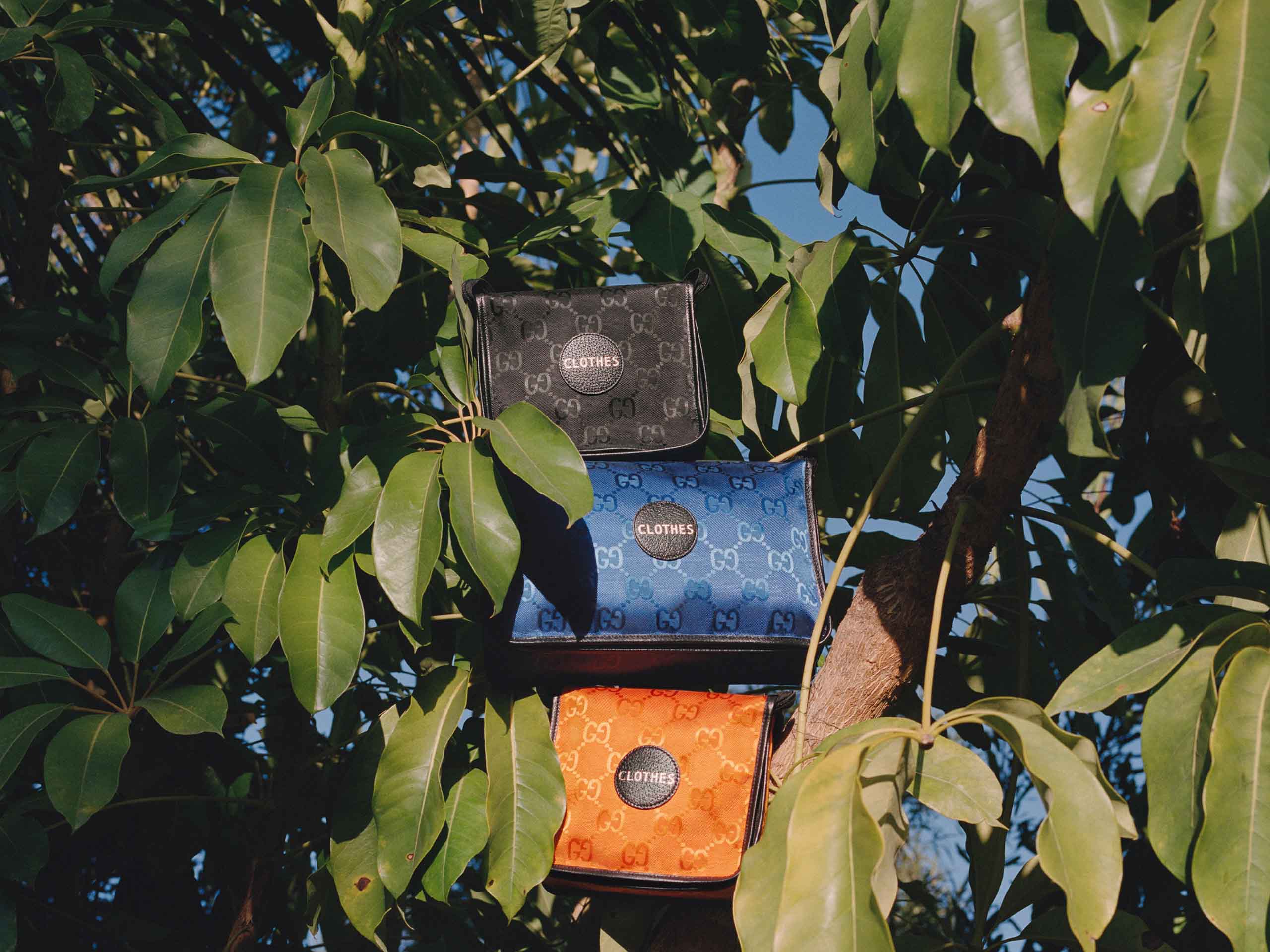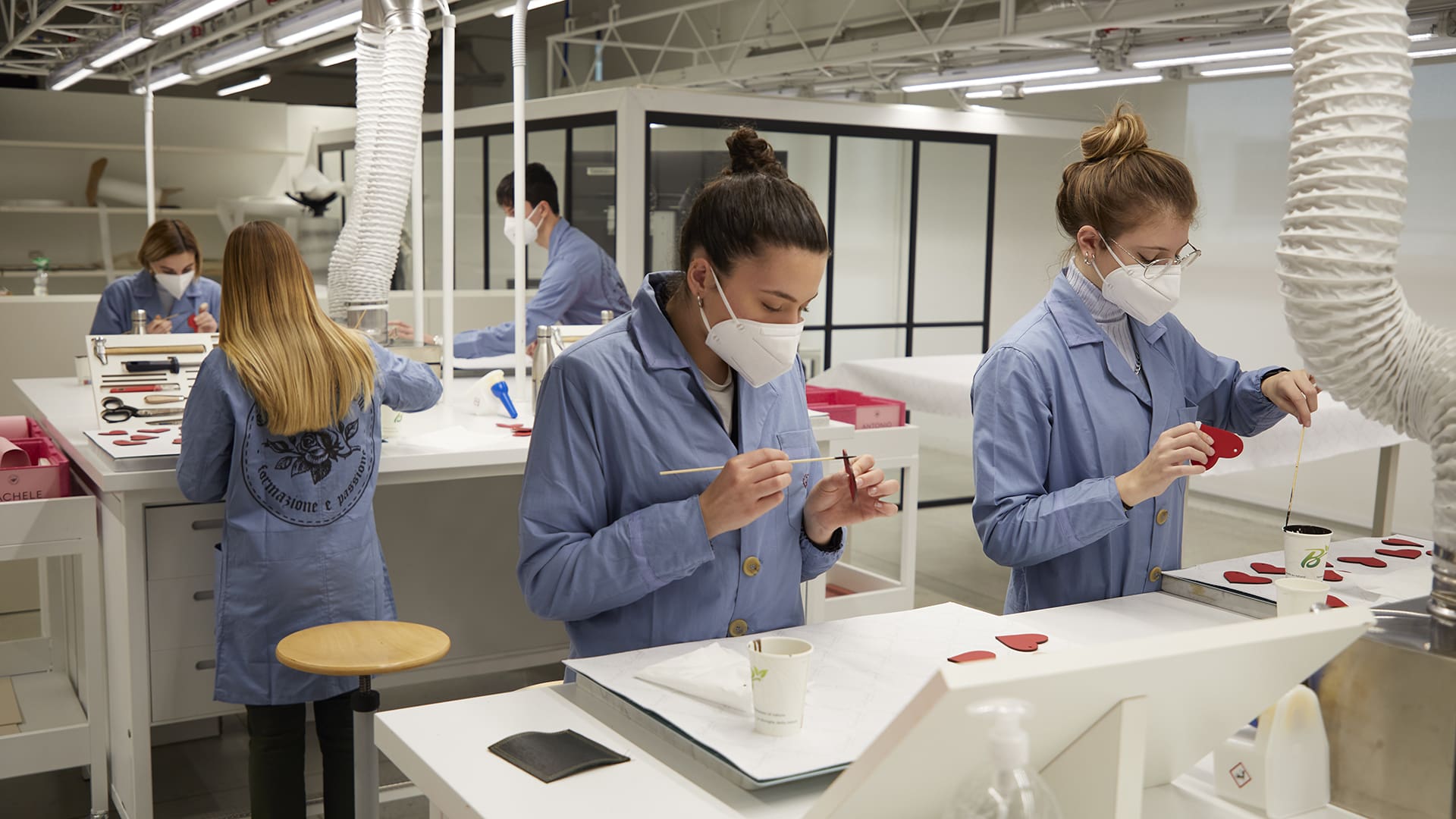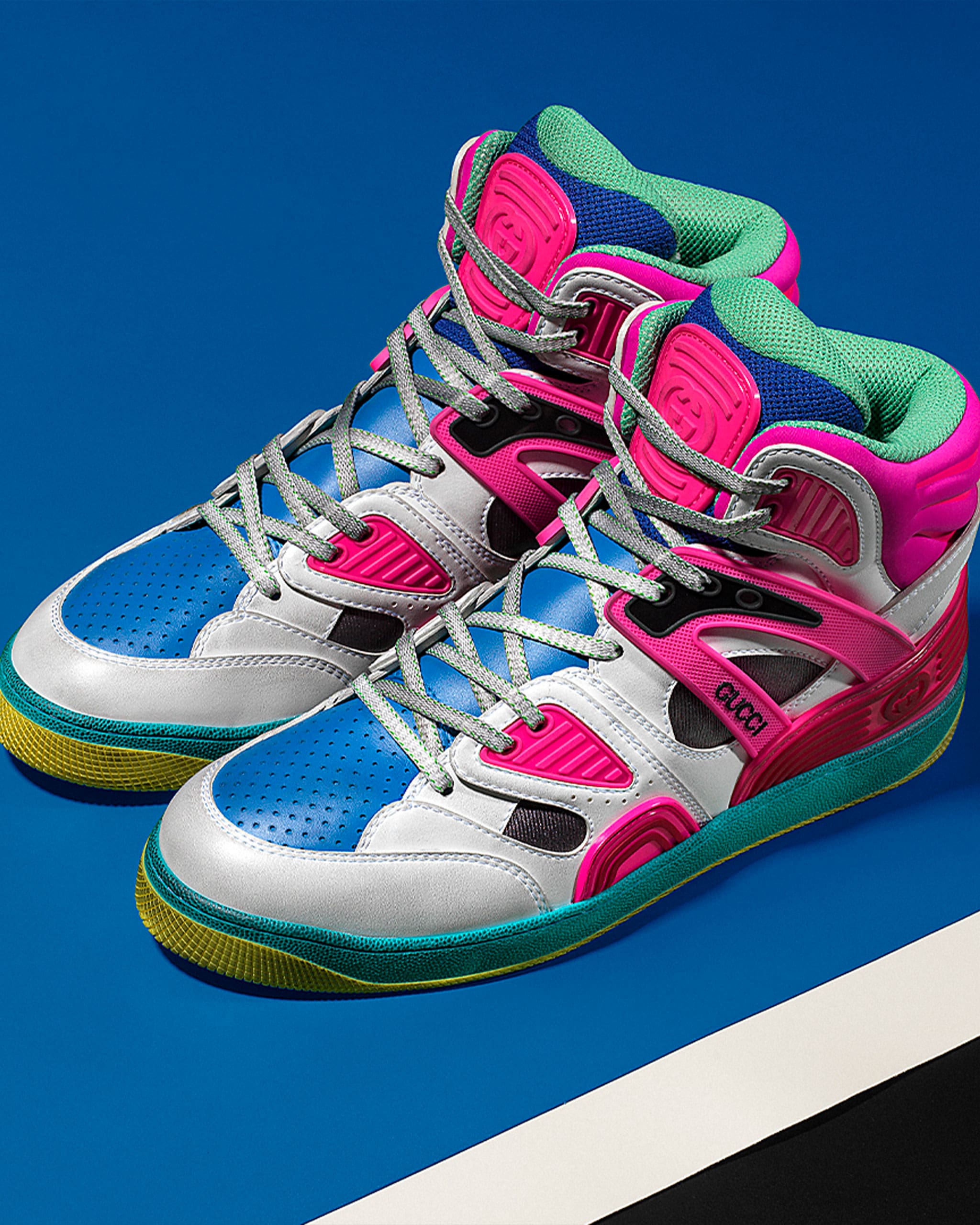Image courtesy of Gucci
Luxury brands are building a foundation for circular culture to become a mainstay within the industry.
We’re on the cusp of innovation in fashion at the moment. Luxury brands are building a foundation for circular culture to become a mainstay within the industry. In fashion, circularity is the idea that a garment is designed, sourced, and produced with the intention of it circulating in society for as long as possible. This can be done through resale, rental, repair, or recycling, to start the loop all over again.

Sustainability is, of course, a multifaceted conversation and circularity is a vehicle toward a more sustainable world. Being environmentally-friendly has transitioned from being “nice-to-have” to becoming a necessity and even an expectation of frontrunners in the industry. What we’ve discovered is that when a brand makes sustainability central to its artistry, the outcome is an inspiring direction toward innovation. A brand that has taken this newfound creativity and restructuring to heart is the esteemed label, Gucci. Over the last few years, the luxury brand has been reducing their ecological footprint across the supply chain by ramping up recycled and regenerated materials in their designs. For example, Gucci’s Off the Grid collection was the first circular line by the brand. A collection made entirely of Econyl, a regenerated nylon textile that is infinitely recyclable. The partnership expanded to a program called the “GUCCI-ECONYL PRE CONSUMER FABRIC TAKE BACK PROGRAM” where the brand’s suppliers reused ECONYL fabric offcuts from their production process and reconstructed them into a new high-quality yarn. Gucci also created Demetra, an animal-free raw material made from sustainable, bio-based materials, seen in the Gucci Basket, Gucci New Ace and Gucci Rhyton sneakers. “In our 100th anniversary year, Demetra is a new category of material that encapsulates Gucci’s quality and aesthetic standards with our desire to innovate, leveraging our traditional skills and know-how to create an evolving future,” said Marco Bizzarri, President and CEO of Gucci. Its 2021 Gucci Equilibrium Impact Report shows that the brand reduced their total footprint by -49% and their greenhouse gas emissions by -46% since 2015. By veering away from fashion’s linear model, Gucci envisions a future where sustainable materials are celebrated in a long-lasting cycle without skimping on quality.

Now, how would a major luxury house like Gucci commit to a circular future? It’s only natural that the brand would become a strategic partner of the Ellen MacArthur Foundation. The Ellen MacArthur Foundation is a charity dedicated to creating a circular economy, designed to work against waste and restore nature. Driven by Gucci’s philosophy to constantly evolve and work towards environmental transformative change, both the foundation and the brand will build on their past efforts to create an enduring positive impact for the planet.
“For us, purpose and progress are paramount to the very ethos of Gucci. We are constantly experimenting and evolving to drive positive impacts in the Gucci community, and in the wider world,” said Marco Bizzarri, President and CEO of Gucci. “The second edition of our Gucci Equilibrium Impact Report for 2021 is a testament to our resolve to continue building a responsible and sustainable business. It is in this spirit we are excited to announce our partnership with the Ellen MacArthur Foundation to further strengthen our commitments to circularity and regenerative agriculture, expanding on the many initiatives we have already established.”
An influential name in fashion, Gucci continuously blazes a pathway towards a creative-led circular economy revolution. It’s no doubt that the Italian brand and other luxury powerhouse labels have a long way to go to completely transition into a circular economy with zero waste. However, the fashion behemoth is making headway, producing waves that reverberate throughout the industry. Take it from Gucci–the best way to predict a sustainable future is to design one.
